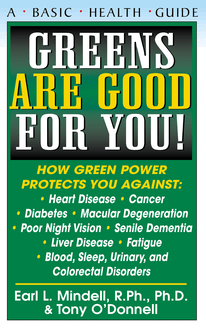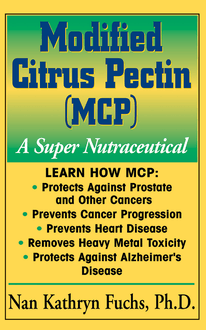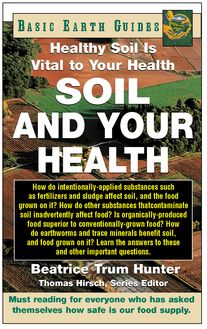Relora , livre ebook
25
pages
English
Ebooks
2003
Vous pourrez modifier la taille du texte de cet ouvrage
Obtenez un accès à la bibliothèque pour le consulter en ligne En savoir plus
Découvre YouScribe en t'inscrivant gratuitement
Découvre YouScribe en t'inscrivant gratuitement
25
pages
English
Ebooks
2003
Vous pourrez modifier la taille du texte de cet ouvrage
Obtenez un accès à la bibliothèque pour le consulter en ligne En savoir plus
Publié par
Date de parution
01 janvier 2003
Nombre de lectures
0
EAN13
9781591206699
Langue
English
Publié par
Date de parution
01 janvier 2003
Nombre de lectures
0
EAN13
9781591206699
Langue
English
The information contained in this book is based upon the research and personal and professional experiences of the author. It is not intended as a substitute for consulting with your physician or other healthcare provider. Any attempt to diagnose and treat an illness should be done under the direction of a healthcare professional.
The publisher does not advocate the use of any particular healthcare protocol but believes the information in this book should be available to the public. The publisher and author are not responsible for any adverse effects or consequences resulting from the use of the suggestions, preparations, or procedures discussed in this book. Should the reader have any questions concerning the appropriateness of any procedures or preparation mentioned, the author and the publisher strongly suggest consulting a professional healthcare advisor.
Series Cover Designer: Mike Stromberg
Editor: Rowan Jacobson
Typesetter: Gary A. Rosenberg
Basic Health Guides are published by
Basic Health Publications, Inc.
8200 Boulevard East
North Bergen, NJ 07047
1-800-575-8890
Copyright © 2003 by James B. LaValle, R.Ph., N.D., C.N.C.
ISBN-13: 978-1-59120-669-9
ISBN-10: 1-59120-097-0
All rights reserved. No part of this publication may be reproduced, stored in a retrieval system, or transmitted, in any form or by any means, electronic, mechanical, photocopying, recording, or otherwise, without the prior written consent of the copyright owner.
Printed in the United States of America
10 9 8 7 6 5 4 3 2 1
Contents
Introduction
1. What Is Stress?
2. Relora to the Rescue
3. Complementary Supplements for Stress Relief
Conclusion
Notes
Resources
About the Author
Introduction
W e are a stressed-out society. If you are like most of us, this will come as no surprise. Stress is something all people experience at times in their lives, but in the fast-paced, technological, demanding lifestyle of the West, it has become epidemic. And whether it is due to a death in the family, relationship problems, health crises, or just simply trying to keep up with day-to-day tasks, we feel the impact of stress. You are driving down the road, late for work, and that person in front of you just won’t move—stress! Your boss calls you into the office and says you need to work harder—stress! The bill collectors are calling and you don’t have the money to pay them—stress! Your kids are yelling, the dog’s barking, and the phone’s ringing—stress! The examples are endless, but what matters is the effect all this stress has upon us.
Over the past few years, researchers have reported that feeling stressed out isn’t just something in our heads, it also shows up in our bodies—and it can have deadly consequences. Recent studies have attributed over 85 percent of all diseases to stress-related factors. 1 Stress often manifests in individuals as anxiety or depression. 2 Stress causes an increase in the hormone cortisol, which causes hunger cravings and weight gain, inflammation in the joints, changes in blood sugar regulation, thyroid changes, blood pressure changes, immune system dysfunction, and other problems that will be discussed later in this booklet. Stress also decreases the hormone DHEA (dehydroepiandrosterone), which in addition to regulating sex hormones seems to slow many of the effects of aging. Clearly, our well-being depends on us getting our stress under control.
Just as stress is nothing new, neither are human beings’ attempts to manage it. The Ancient Egyptians had aromatherapy oils, the Romans tried baths and lounging, the Chinese favored herbal mixtures and meditation. Modern physicians have tried to manage stress for decades with high-powered pharmaceuticals, such as Valium and Xanax, and although these drugs will cause relaxation, they often make people lethargic and unable to function normally—mentally, physically, and even sexually. They also tend to be habit-forming.
Wouldn’t it be nice to find a solution to decrease that unwanted stress, along with the food cravings and weight gains it causes, and to improve your immune system and slow down the aging process as well—all without causing stupor or addiction? More and more evidence is pointing to the discovery of just such a product. It is called Relora, and it is brand new on the market.
A dietary supplement developed over a four-year period, Relora is the result of a worldwide effort to screen more than one hundred traditional medicinal ingredients for the best possible natural product for stress and cortisol control. Some of the active compounds in Relora have been studied extensively for twenty-five years, and the plants from which it is derived have been used for centuries by many cultures to support the body and nurture well-being. Relora tackles the effects of stress head-on, enhancing mental, emotional, and physical vitality, and normalizing cortisol and DHEA levels. It can even help you shed those unwanted pounds!
What Is Relora?
Relora is a proprietary product developed by Next Pharmaceuticals, Inc., a California-based research and development company specializing in natural ingredients for dietary supplements. It contains ingredients extracted from two plant species that have been used in traditional Chinese medicine for more than 1,500 years: Phellodendron amurense and Magnolia officinalis. Relora helps to relieve stress and anxiety, which in turn may help you lose weight. The research and development of Relora involved sophisticated testing and screening for ingredients that have antianxiety properties but no sedative effects. 3 Initially, investigators tested the Magnoliaceae plant family as a lead source of potential antianxiety products. Later studies on Phellodendron amurense led to the discovery of an extract that complements the pharmacological activity of the magnolia extract. The final formulation of Relora is a proprietary blend of the two extracts.
Through a series of studies, it became clear to the scientists that Relora was a safe and effective formulation. Unlike pharmaceuticals, Relora works with the body’s natural chemistry to maintain normal levels of cortisol and DHEA, hormones that, as we’ve seen, not only affect physical and emotional well-being but can also have a major impact on appetite and how the body metabolizes fat. By working to re-establish a stable balance of these hormones, Relora can help you break the stress cycle and restore optimum health to mind and body.
In addition to controlling mild anxiety and the symptoms associated with it—such as irritability, restlessness, tense muscles, poor sleep, fatigue, and difficulty concentrating 4 —Relora has another important benefit: it is nonsedating. The plant extracts in Relora bind directly to several important targets in the central nervous system associated with anxiety, bypassing the mechanisms involved in alertness entirely. 5
In this booklet, we will examine what stress is—why it exists, what can trigger it, and what the deleterious effects of it are—and then go on to learn how Relora combats this killer. We will then go on to explore a complete regimen of Relora use, combined with other supplements and lifestyle changes, that can significantly reduce stress, improve appearance, and bring you many extra years of healthy living. Read on—relief is at your fingertips.
1. What Is Stress?
S tress involves anything that disturbs an individual’s physical, mental, or emotional equilibrium. It can be defined as a number of normal reactions by the body (mental, emotional, and physical) that are designed for self-preservation. As such, stress is a normal, desirable, and beneficial part of our lives. Most people are more active, more invigorated, more creative, more productive, and more alive because of the challenges created by minor stresses. However, many people are also exposed to much higher levels of stress than they realize. And when the stress response is set off too often, and at improper times, it can have a detrimental effect on the body.
When the body is under stress, the nervous system responds by increasing a biochemical activity termed “sympathetic activity,” which releases certain brain chemicals that create nervous restlessness, hyperactivity, anxiety, muscle tension, cardiovascular stress, and intestinal cramping, to name a few symptoms.







